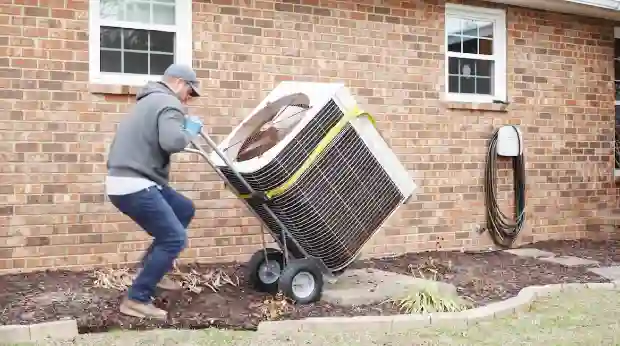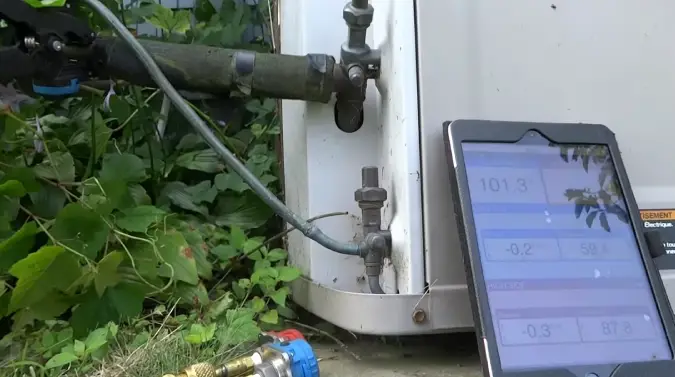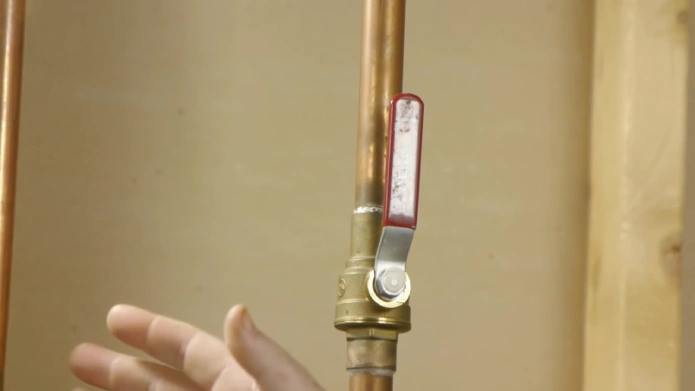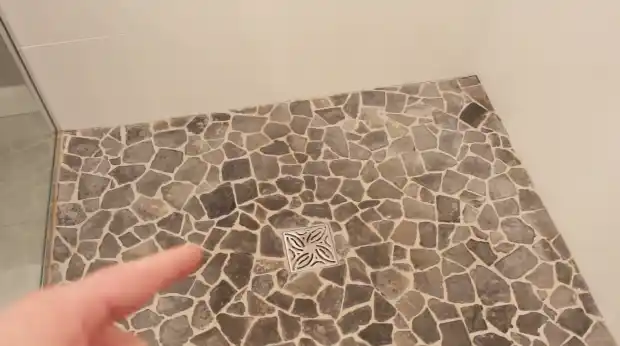Last Updated on June 18, 2023
Heat pumps are vital in optimizing your home’s heating and cooling systems. Their remarkable functionality ensures consistent indoor comfort all year round. However, an unfortunate incident that can jeopardize your unit and the surrounding environment is the occurrence of water leaks.
There are several reasons why heat pumps can experience water leaks, including ice build-up, drainage issues, coil problems, and installation irregularities. To ensure your systems function optimally, you must be well-informed of these root causes and vigilant in their maintenance efforts.
Discover the reasons behind water leaks in heat pump systems and find out why it’s crucial to address leaks promptly.
Why Is My Heat Pump Leaking Water Outside: 5 Reasons

Heat pumps are a popular choice for heating and cooling homes. However, a common issue that homeowners face is their heat pump leaking water outside.
The most common reasons are:
1. Ice Build-up: A Chilling Culprit
Ice buildup on the evaporator coils is a potential culprit for water accumulation in the surrounding area. This happens when refrigerant levels are low, causing the coils to become too cold and freeze moisture. The ice buildup can obstruct airflow and cause the coils to freeze completely.
When this happens, the heat pump defrosts, melting the ice and causing the water to flow into the condensate pan. To prevent water leaks caused by ice buildup, it is important to regularly check the condensate pan to ensure it is level and free of debris.
2. Drainage Distress: A Clogged Journey
Clogged drains can lead to water overflow and leakage, potentially damaging the unit and surrounding areas. When the heat pump is in use, it extracts moisture from the air, storing it in a drain pan prior to being drained through the condensate drain. Dust, dirt, and organic matter can accumulate in drains over time, clogging them.
Algae growth is another common cause of condensate drain clogs. It thrives in warm, moist environments and can quickly accumulate, forming blockages that prevent proper water flow. Failure to clear the clog on time can result in water overflowing from the drain pan, causing damage to surrounding areas.
3. Coil Conundrum: When Dirt Causes Drips
Accumulated dirt and debris on the evaporator coil can interfere with the heat transfer process, leading to malfunction and water leakage. It is important to clean the coil, replace dirty air filters, and schedule annual tune-ups with an HVAC technician to prevent these issues.
Neglecting maintenance can decrease efficiency, increase energy costs, and cause expensive repairs or replacements. Homeowners can prioritize maintenance to ensure their heat pump operates reliably and efficiently all year long.
4. Pan Problems: A Cracked Consequence
Excessive humidity can cause cracks in the overflow pan of a heat pump, resulting in leaks. The overflow pan is designed to catch any drips from the coils, but a cracked pan will lead to water seepage. This problem can damage the heat pump, resulting in costly repairs if ignored.
Homeowners must be mindful of this issue and take measures to prevent it, such as regularly cleaning coils, checking the pan for cracks, and ensuring proper installation and drainage. By proactively protecting their heat pump, homeowners can avoid the inconvenience and expense of repairs.
5. Installation Imperfections: Faulty Fit
Improper heat pump installation can cause leaks and structural damage, highlighting the need for proper installation. Leaks may occur due to incorrect pipe fittings or an unlevel unit with excessive pressure. It can cause water damage to the pump and surrounding area and undue strain on the compressor, causing leaks.
To ensure proper installation, it is crucial to have a qualified technician install the heat pump, considering the unit’s size, location, and necessary pipe fittings. Place the unit on a level surface, and don’t put too much pressure on it. The installation ensures a heat pump’s longevity and efficiency, preventing expensive repairs.
Why Is It Crucial to Identify and Fix the Water Leak in a Heat Pump System?

Identifying and fixing water leaks in a heat pump system is crucial due to its impact on the system’s performance, risk of damage, and financial implications.
ONE: Impact on Heat Pump Performance
Water leaks from heat pump coils can impair heat transfer, resulting in decreased efficiency, higher energy consumption, and decreased indoor comfort. Prompt attention to leaks is essential to prevent further damage to the system.
If left unaddressed, water leaks can cause heat pumps to work harder, using more energy and resulting in higher utility bills. Regular maintenance and inspections can help detect and address leaks before they escalate into major issues.
TWO: Risk of System Damage
Heat pumps are at risk of system damage due to corrosion and compressor failure. Moisture and environmental factors can cause corrosion, which leads to poor efficiency and malfunctions. Corrosion weakens metal parts, can cause leaks, and damage electrical connections, valves, and other components.
Compressor failure can occur from wear and tear, overheating, and electrical issues. Corrosion can also damage the compressor, causing motor winding or bearing failure, ultimately leading to compressor failure.
Water leakage issues need to be addressed immediately, and the compressor must be protected from potential damage since compressors are expensive.
THREE: Financial Implications
A malfunctioning heat pump can have significant financial implications due to increased energy costs and repair or replacement expenses. If the heat pump has water leaks, it may lead to inefficient operation and higher energy consumption, causing a rise in utility bills.
Leaks can also damage internal components, resulting in costly repairs or replacements. Promptly addressing water leaks through regular maintenance and inspections can prevent extensive damage and save costs.
Is it better to repair or replace the heat pump?

When deciding whether to repair or replace a malfunctioning heat pump, cost-effectiveness is key. If the cost of repair is less than half the cost of a new unit, repairing is the better option. But if it exceeds 50%, replacing the heat pump may be more cost-effective.
There are also other factors to consider, such as the age of the unit, frequency of breakdowns, and energy efficiency.
If the heat pump is over a decade old and frequently malfunctions, then replacement is likely. Investing in a newer, more efficient unit would also be more cost-effective in the long run if the unit could be more energy-efficient.
Will the heat pump leak water in summer?
Low refrigerant levels can cause cooling coils to freeze over in a heat pump, which can interfere with cooling and cause leaks. When the refrigerant level is low, the heat pump has to work harder to cool the air, which can cause it to overheat and freeze.
This can lead to ice buildup on the coils, which can cause the heat pump to leak water outside. Water can leak outside from the heat pump due to melting ice.
The heat pump and surrounding area may be damaged by this, which can be a serious issue. If you notice water leaking from your heat pump during the summer, it is important to have it inspected by a professional to determine its cause and repair it as soon as possible.
Are heat pumps prone to condensation during the winter?
Condensation underneath a heat pump during the winter is a common occurrence that should not cause concern. This is because heat pumps work by extracting heat from the air around them, and when the air is cold, it holds less moisture.
As the heat pump draws in this dry air, it creates a temperature differential between the inside and outside of the unit, causing condensation to form outside. This resembles how a cold glass of water will ‘sweat’ on a hot day.
While condensation may seem like a problem, it is a sign that your heat pump works properly. The formation of condensation means that the unit effectively removes heat from the air, essential for keeping your home warm during winter.
However, notice an excessive amount of water pooling around your heat pump. The problem could be something more serious, like a refrigerant leak or a blocked drain line, and you should call a technician.
What temperature should you stop using a heat pump?
A heat pump becomes less efficient when outdoor temperatures fall below 40°F, leading to more energy consumption. Because heat pumps transfer heat from the outside to the inside of a building, when the outside temperature drops, there’s less heat available.
In this case, switching to an alternative heating source is recommended when the outdoor temperature is below 25 degrees Fahrenheit. It helps prevent system damage and maintain comfortable indoor temperatures during the winter.
Watch Out for Water Leaks in Heat Pump Systems
Heat pump systems are commonly used for heating and cooling homes. It can experience water leaks which can cause damage and decrease efficiency. Repairing the unit is recommended for minor leaks. Replacing the unit may be a better solution for significant damage.
It is imperative to emphasize routine maintenance’s importance to avoid potential issues proactively. It’s crucial to acknowledge that leaks can stem from numerous factors, such as a blocked drain line or a malfunctioning pump.
Furthermore, it’s worth noting that heat pumps typically experience higher levels of condensation during the winter season. Addressing any issues immediately ensures a long lifespan and optimum performance.



